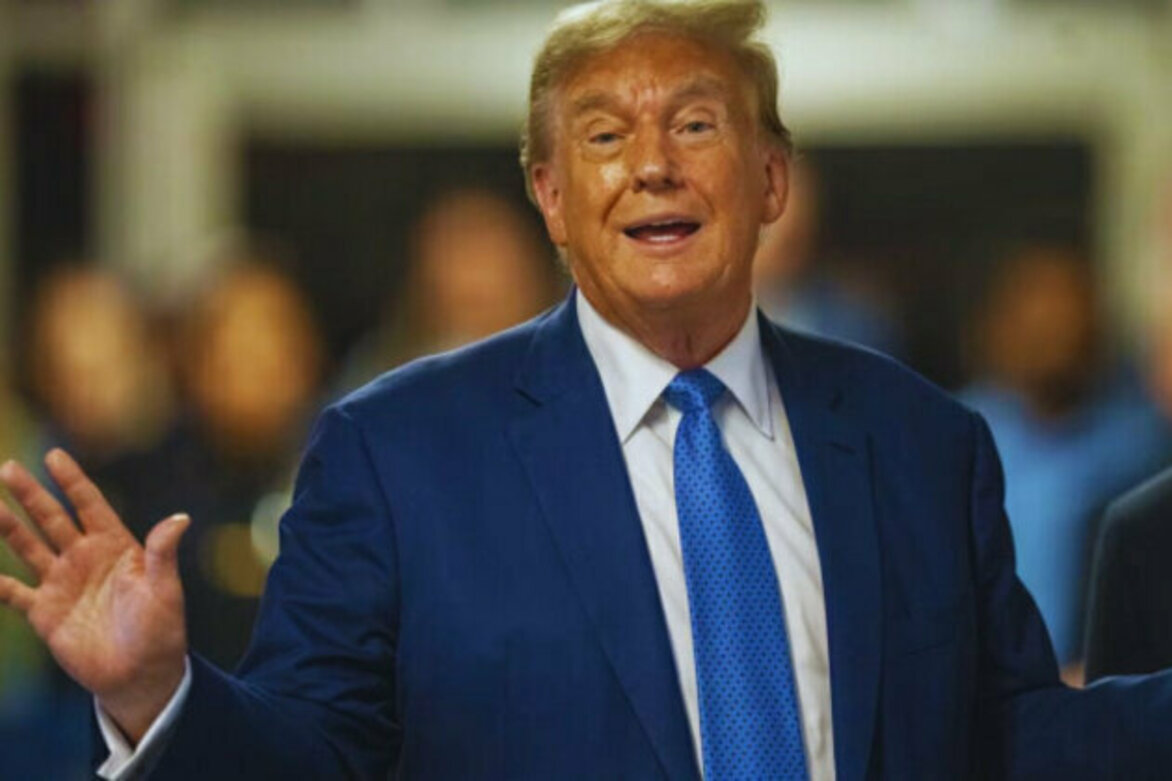Trump Backs Down Massive China Tariffs Could Be Slashed Soon
Novinite.com
23 Apr 2025

US President Donald Trump has indicated a possible softening of his trade stance with China, suggesting that the current steep tariffs may be reduced significantly. Speaking at a White House event, Trump stated that while the tariffs?currently over 145%?would not be eliminated entirely, they would ?come down substantially.? His remarks represent a shift in tone following a period of aggressive rhetoric and escalating retaliatory measures between Washington and Beijing.
Trump's comments followed statements from Treasury Secretary Scott Bessent, who had earlier addressed investors at a private JP Morgan Chase event. Bessent described the ongoing trade tensions as unsustainable, noting they had essentially halted bilateral trade. He argued that the U.S. was not seeking full economic decoupling from China but rather a rebalancing of trade relations. This perspective appeared to ease investor concerns, boosting stock markets across the U.S. and Asia. Wall Street closed higher, while Asian indexes such as Hong Kong's Hang Seng and Japan's Nikkei 225 posted notable gains.
In China, Trump's shift drew strong reactions on social media. The hashtag ?Trump chickened out? quickly became a top trend on Weibo, attracting more than 110 million views. In response to both Trump and Bessent's remarks, China's Foreign Ministry urged the U.S. to move away from coercion and engage on the basis of equality and mutual respect. Ministry spokesperson Guo Jiakun emphasized that pressure tactics would not lead to a successful agreement and reiterated China's readiness to either negotiate or confront, depending on Washington's approach.
The escalating tariff battle between the world's two largest economies has disrupted supply chains, unsettled markets, and fueled fears of a global downturn. China has reacted defiantly, raising tariffs on U.S. goods up to 125%, expanding its export control lists, and targeting key American industries, including aviation and entertainment. Measures included the return of Boeing aircraft and limits on the screening of Hollywood films.
Despite the strained relationship, Trump maintained that he has a good rapport with Chinese President Xi Jinping and expressed optimism about future cooperation. He insisted the U.S. would take a conciliatory approach, noting that both sides should act ?very nice.? When asked whether the U.S. would use pressure tactics or bring up issues like the Covid-19 pandemic in negotiations, Trump said no, adding, ?Ultimately, they have to make a deal, because otherwise they?re not going to be able to deal in the United States.?
However, according to sources familiar with Beijing's thinking, the Chinese side has been uncertain about who in the U.S. government is leading the negotiations, particularly after Trump's introduction of new tariffs in early April. The same source indicated that while Trump may prefer to handle talks himself, this is at odds with China's expectations for formal diplomatic engagement. Moreover, China reportedly interpreted Trump's silence on hawkish remarks made by senior U.S. officials as tacit approval, complicating trust-building efforts.
Earlier this month, Beijing also publicly criticized U.S. Vice President JD Vance for controversial comments about Chinese citizens, which sparked a backlash online in China. This incident added further strain to already tense bilateral relations.
